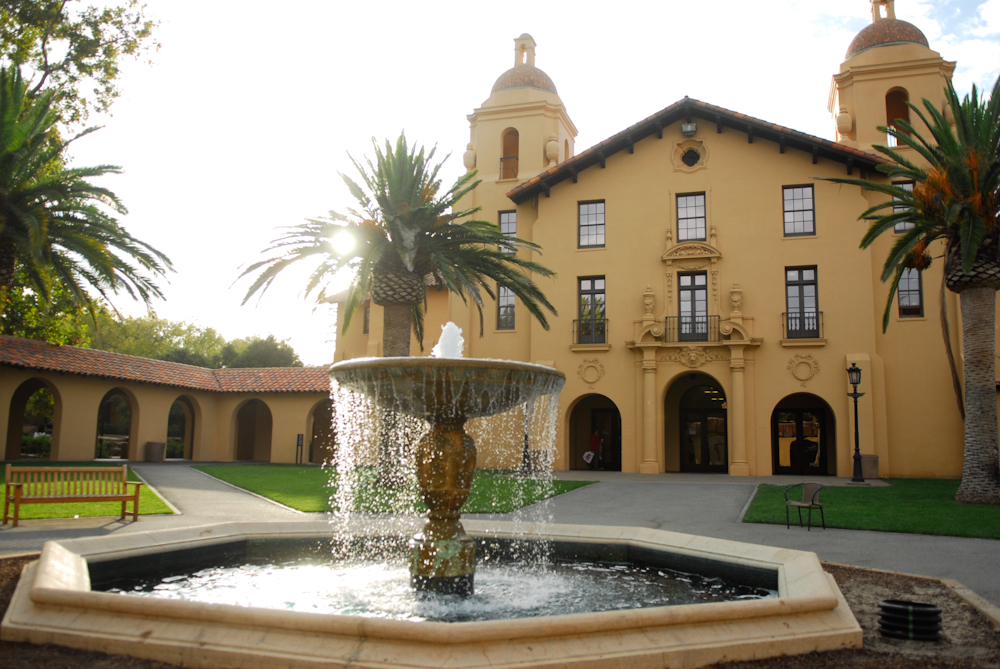The Service Employees International Union (SEIU) Higher Education Workers Local 2007 and the Stanford Graduate Workers Union (SGWU, UE Local 1043) have each been engaged in collective bargaining with the University for months. SGWU is fighting for our very first contract, and SEIU is renegotiating a contract, expiring on Aug. 31, that was first signed over 50 years ago. Both of our unions have faced the same deleterious tactics from University leadership: extremely low wage offers accompanied by stonewalling on employee benefit programs and several noneconomic issues.
By disrespecting the work it takes to keep this campus running and treating frontline workers unfairly, University leadership ignores the issues we face today and risks destroying everything that keeps Stanford at the forefront of education and research. We, united members of SEIU and SGWU, call on University leadership to change course before Stanford loses its preeminent position in the nation.
SEIU represents essential workers at Stanford in housing, dining, medical research and energy generation; SLAC technicians; trades such as heating, ventilation, air conditioning and plumbing; and many other workers across campus. Our members, like so many campus employees, have been pummeled by high inflation and the rising cost of living in the Bay Area. In negotiations, University leadership has repeatedly refused to consider almost all union proposals addressing the high costs of health insurance, housing, retirement, parking and a myriad of other economic hardships facing our members, even though SEIU workers receive historically low pay lacking parity with those of comparable educational and municipal institutions.
SGWU represents all graduate workers engaged in teaching or research through a Stanford appointment. Despite tremendous momentum in our card drop campaign in April 2023, historic National Labor Relations Board election (which certified the creation of our union after Stanford refused voluntary recognition of our card campaign) in June 2023 and members’ overwhelming ratification of our economic platform in May, Stanford has dragged out the negotiation process since November and just returned an unacceptably low first offer for our wages — an offer that wouldn’t beat recent inflation, leaving us making less money every year. Our members feel the lack of purchasing power every day, in particular when the cost of on-campus food and rent are increasing this fall by higher percentages than Stanford’s proposed raise.
Members of both unions know that everyone on this campus needs an immediate and substantial raise. Health insurance costs for our members (and for every other Stanford employee, faculty and staff alike) have risen dramatically over the last decade, but Stanford has done very little to ameliorate this burden. The vast majority of SEIU members can no longer afford to use Stanford’s own health care system and struggles to pay for even the lowest cost plan, Kaiser Permanente. Stanford’s dental benefit for SEIU, Delta Dental, has become impossible to use as local dentists have dropped out of its network in the face of extremely low reimbursements. Similarly, graduate workers pay hundreds of dollars each month to add dependents to their Stanford health plans (we note the plan is increasing premiums by 10% this fall, which is more than Stanford’s initially proposed 3% pay raise), and the University has not responded to SGWU’s proposal to cover this premium.
All members of the Stanford community, past and present, are affected by these negotiations. Stanford retirees have been hit especially hard by healthcare cost increases. These are the faithful workers who dedicated their careers to building a world class institution. However, retirees, both faculty and staff, have been completely abandoned in the University’s negotiations with SEIU. The University insisted that its economic capacity is limited to active-employee healthcare only. This stark vision of reality leaves each and every one of us in a completely untenable long term economic situation and allows Stanford to pass off the costs of retiree healthcare to federal programs like Medicare.
It doesn’t have to be this way. Active and retired employees at peer institutions such as Harvard and UC Berkeley pay much lower out-of-pocket healthcare costs than their Stanford counterparts simply because, unlike Stanford, those institutions have been willing to spend more to invest in the health and wellness of all their employees.
Stanford’s position as a world-class university comes from educational and research goals that are carried out and supported daily by the work of the members of our unions. The University’s short sightedness on wages and benefits jeopardizes its ability to attract and retain quality staff and students. Stanford’s refusal to quickly and responsively engage with the process of collective bargaining to address workers’ hard-felt needs means that the Board of Trustees is treating our institution as a hedge fund, not a university, and sitting atop a bloated endowment while they benefit from the sweat equity of its current and former employees.
We call on Stanford leadership to exercise their duty to this great institution and to its many workers who are in economic crisis. Stanford needs to step up and stop this race to the bottom by becoming a leader in salary and benefits, rather than being reluctant to invest in its workforce. Workers of all stripes, here and across the nation, have made it clear that the old status quo is no longer acceptable. SGWU and SEIU are both awaiting Stanford’s next move at the bargaining table to address our members’ many concerns.
Richard Patrone is a retired worker and lead negotiator for SEIU Local 2007. Paul Regalado is a SLAC maintenance worker and the president of SEIU Local 2007. Thom Chaffee is a fifth-year Ph.D. candidate in geophysics and a representative for the Doerr School on the SGWU Bargaining Committee. Paul Markley is a second-year Ph.D. candidate in biology and a representative for biosciences on the SGWU Bargaining Committee.
